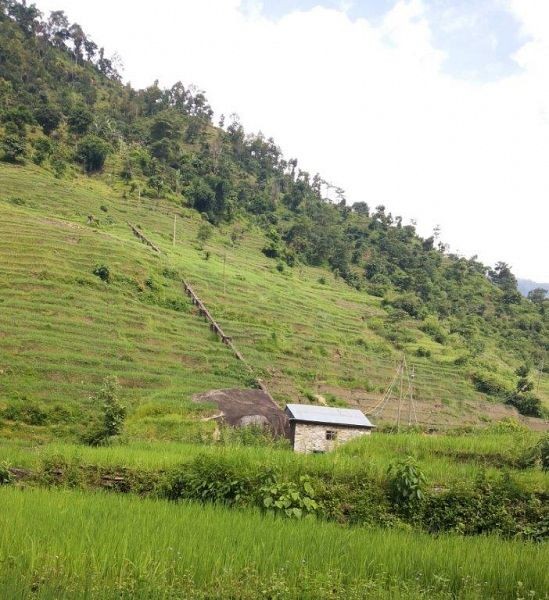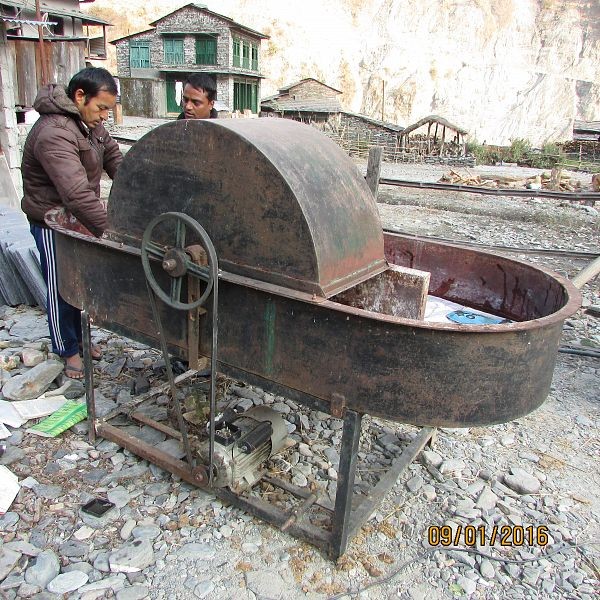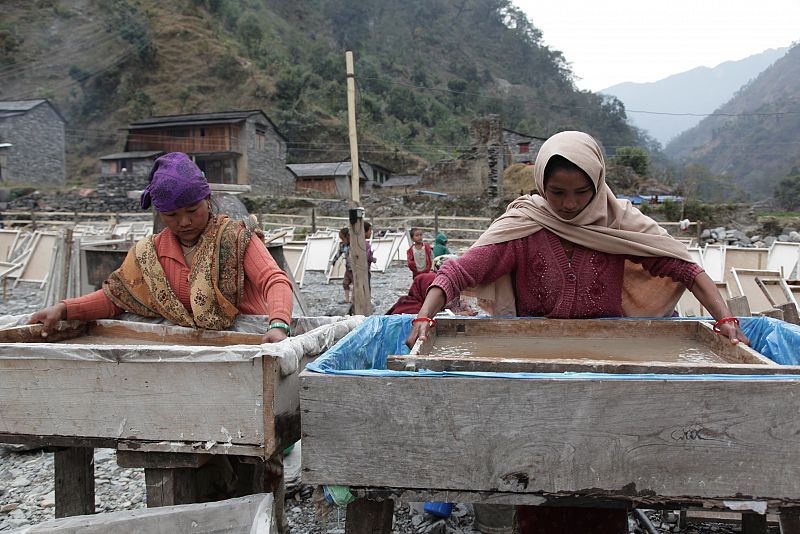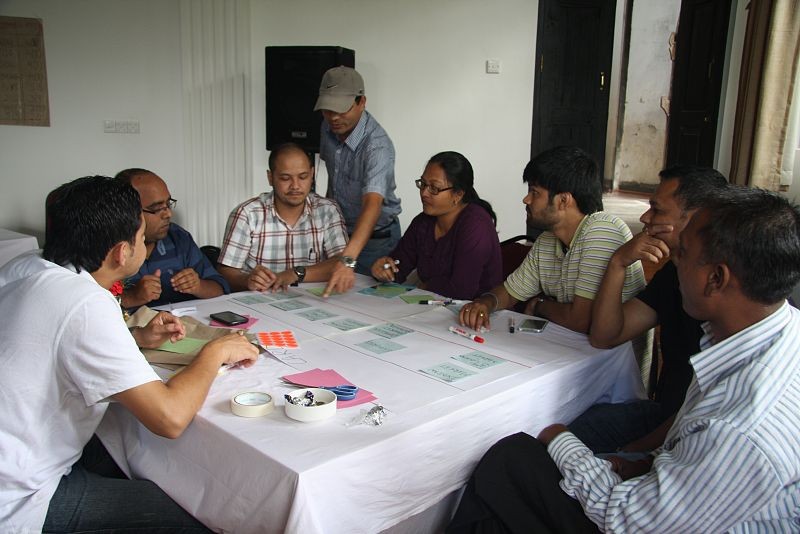This projects aim was to ensure the sustained operation of existing micro-hydro plants through rehabilitation, optimisation, increased financial stability, capacity-building and management support
Decentralised energy systems based on micro-hydro power can increase access to energy in remote off-grid locations. In the medium and long term, micro-hydro plants (MHPs) installed in rural settings may face maintenance problems and stop working at optimal levels. One of the main reasons for poor operation is under-utilisation: low plant load factors leading to weak cash-flow and, as a result, to insufficient maintenance. Simultaneously, opportunities for income-generating activities and for supporting rural enterprises often go unexploited.

Practical Action aimed to promote the long-term use of certain existing MHPs using a holistic approach called Participatory Market System Development (PMSD). It emphasises stakeholder participation for creating sustainable rural enterprises and empowering marginalised market actors.
Five existing micro-hydro projects (three in Nepal and two in Odisha state, India) ranging from 14 to 100 kW capacity, saw their MHPs serviced and refurbished. Moreover, additional demand for power was created by establishing 21 new enterprises, ranging from mills for rice and wheat to construction businesses. The aim was to increase the load factors of the MHPs and, consequently, their financial viability.
Lastly, technical and business skills trainings were provided to the existing and new MHP users. The project also supported rural enterprises establishment and operation for optimum utilisation of the MHPs. All the activities are expected to contribute ultimately to the long-term sustainability of the MHPs. The project also worked towards influencing policymakers to remove policy barriers to micro-hydro and to support energy-based rural enterprises.
Technology, Operations & Maintenance
The technical aspect of the project revolved around improving the reliability of the energy supply at the five targeted MHPs. The first step was to identify the rehabilitation, improvement and maintenance needs and to determine a baseline against which project outcomes could be measured. The improvements included replacing or refurbishing generators, fixing water leaks in the canals, de-silting tanks, repairing distribution lines and points, installing new meters, replacing one whole turbine and various parts of others, and refurbishing the power houses. The community and the MHP management committees actively participated in this work.

Delivery Model & Financial Management
Non-technical efforts were directed towards making MHP management committees aware of opportunities for increased revenue generation from the sale of a reliable electricity supply. In addition, the project provided incubation support to new enterprises and helped existing ones to upgrade by providing advice and capacity development on business planning and management. Capacity development activities also targeted policymakers and local partners, and aimed to explain the Participatory Market System Development (PMSD) approach.
Key stakeholders of the MHPs and selected enterprises participated in PMSD workshops at the five project sites. The process helped to identify potential enterprises in the MHP catchment areas. Market studies for the potential enterprises were then carried out and support was provided to the entrepreneurs to develop their business plans. Additionally, the project supported the entrepreneurs in the selection, procurement, installation and operation of machinery and equipment. The project also provided financial support to the entrepreneurs as an incentive to establish and run their businesses and facilitated links to micro-finance institutions.
At the start of the project, the Nepalese MHPs had functioning community funds to cover maintenance and operation costs. In contrast, the funds for the two MHPs in Odisha state were inactive. The project supported the reactivation of the funds and established systems for their long-term management.
Finally, the capacity of the MHP management committees and operators was enhanced through targeted training, shadowing/exposure experiences and workshops.
Environmental Issues
In addition to enhancing access to electricity in remote rural locations, the project contributed to replacing the use of fossil fuels. As the project involved existing MHPs, no particular provisions were made to assess the environmental impact of the plants.
Social Issues
The project worked to improve governance and transparency in the management of MHPs. Efforts were made to promote gender equity and the inclusion of marginalised groups. Of the 21 new income-generating enterprises, two are owned and operated by women.
Regular interaction with the communities was key to their involvement in improved MHP management and to creating a sense of ownership. Throughout, Practical Action worked in partnership with local NGOs (Dhaulagiri Community Resource Development Centre (DCRDC) in Nepal and Koraput Farmers' Association (KFA) in Odisha, India).

Results & Impact
Five MHPs were rehabilitated and maintained and these now provide a reliable electricity supply, delivering significant efficiency gains. An additional 110 households (total 1910) were electrified in comparison to the baseline of 1,800.
The productive use of micro-hydro generated electricity has expanded and this, in turn, has led to increased plant load factors by, on average, a factor of two. The monthly income generated by the MHPs has increased proportionately and this additional revenue will ensure adequate cash-flow for long-term operations, repairs and maintenance.
The PMSD approach for the promotion of energy-based rural enterprises was used to provide business counselling and orientation to around 80 individuals. This, in turn, led to 21 new enterprises being formed. A further 20 people were trained in the principles of the approach, with the aim of reaching out to entrepreneurs in other micro-hydro catchment areas.
However, the project results also show differences between the two project sites. While the conditions for developing business activities and increasing productive use in Nepal were favourable, Odisha’s situation was not advantageous as access to electricity and practical support cannot instantly bridge the gaps that a community has faced for decades.
Replicability
Lack of access to electricity is a significant barrier to development in rural communities in Nepal and Odisha state, where around 40% and 70% (respectively) of households have no electricity. Past efforts to exploit the regions’ potential for micro-hydro power have encountered varying degrees of success. The experience gained in this project might help to re-energise under-performing micro-hydro projects by focusing on growing the use of micro-hydro power for productive applications.
To increase the possibility of replication, the project results have been shared via workshops, reports and project visits with local/district governments and ministries in Nepal and Odisha, as well as with the Nepalese Alternative Energy Promotion Centre (AEPC).

Lessons Learned
This experience demonstrates that promotion of end-uses of MHPs and strengthening the financial base of MHPs is instrumental in ensuring their optimal operation and maintenance which, in turn, affects their long-term sustainability. The PMSD approach is warranted where certain underlying conditions for market development exist. For regions and communities facing severe development shortfalls, the approach has limits and needs to be accompanied by other development measures.
-> Download the detailed summary here!
Projects with same technology
Supporting creation and expansion of energy SMEs in mountainous areas of Pakistan
Low Head Micro Hydropower Systems for Application in Poor Villages in the Amazon Region
Improve the living conditions of the village population through access to modern energy
Projects in same country
Gasification based Electrification for Rural Livelihoods and Energy in Nepal
Demonstration of Sustainable Low Head Pico-Hydro to Deliver Enhanced Rural Energy Services to the Terai Region of Nepal
To demonstrate feasibility of a low-head propeller turbine in low-lying unelectrified communities
